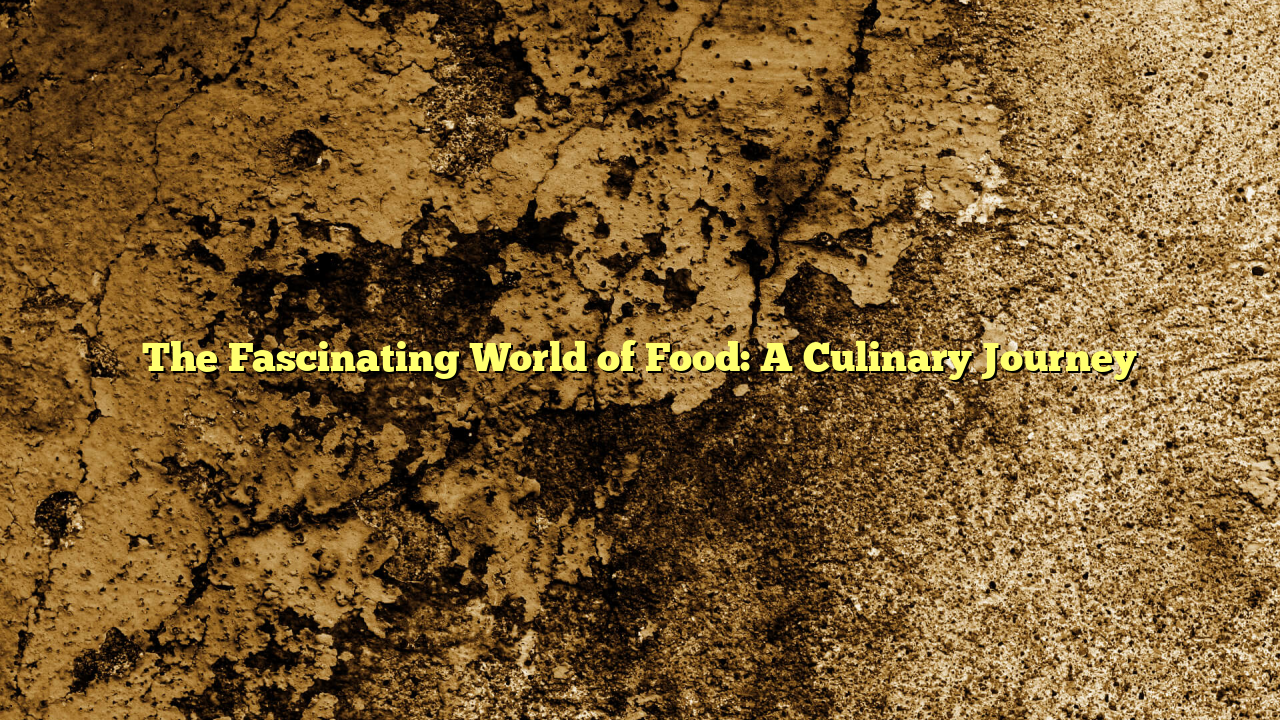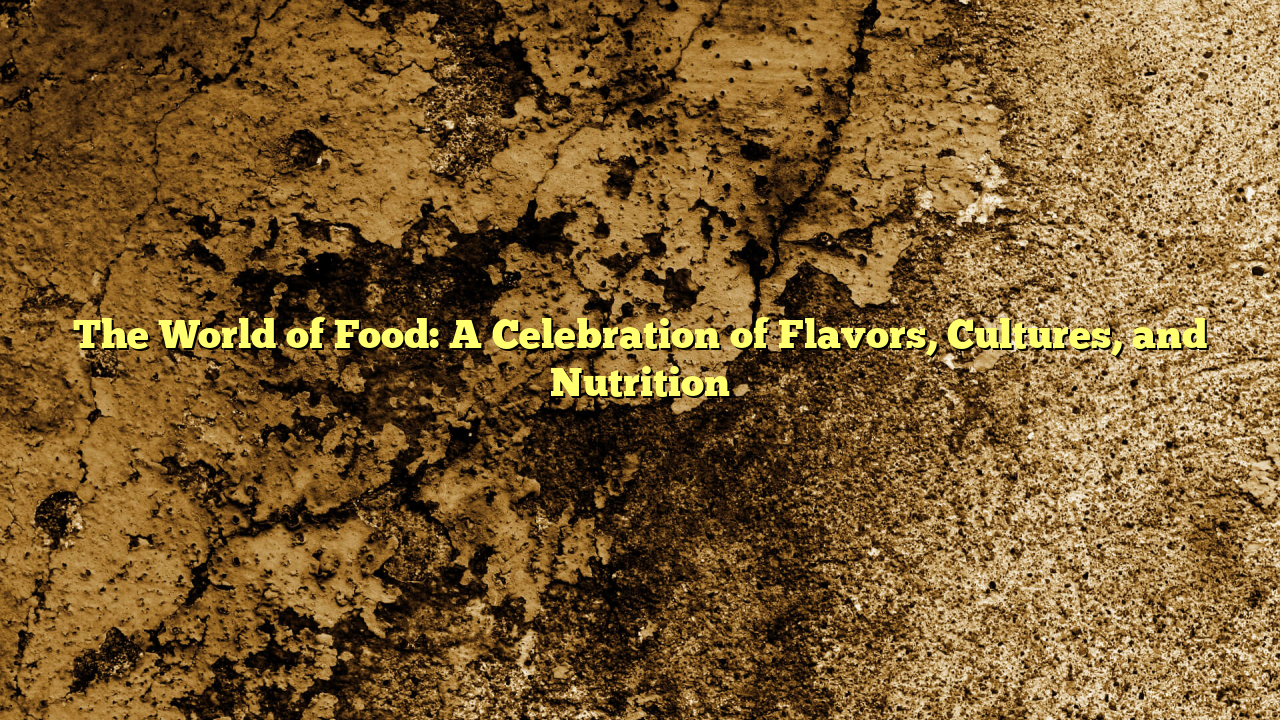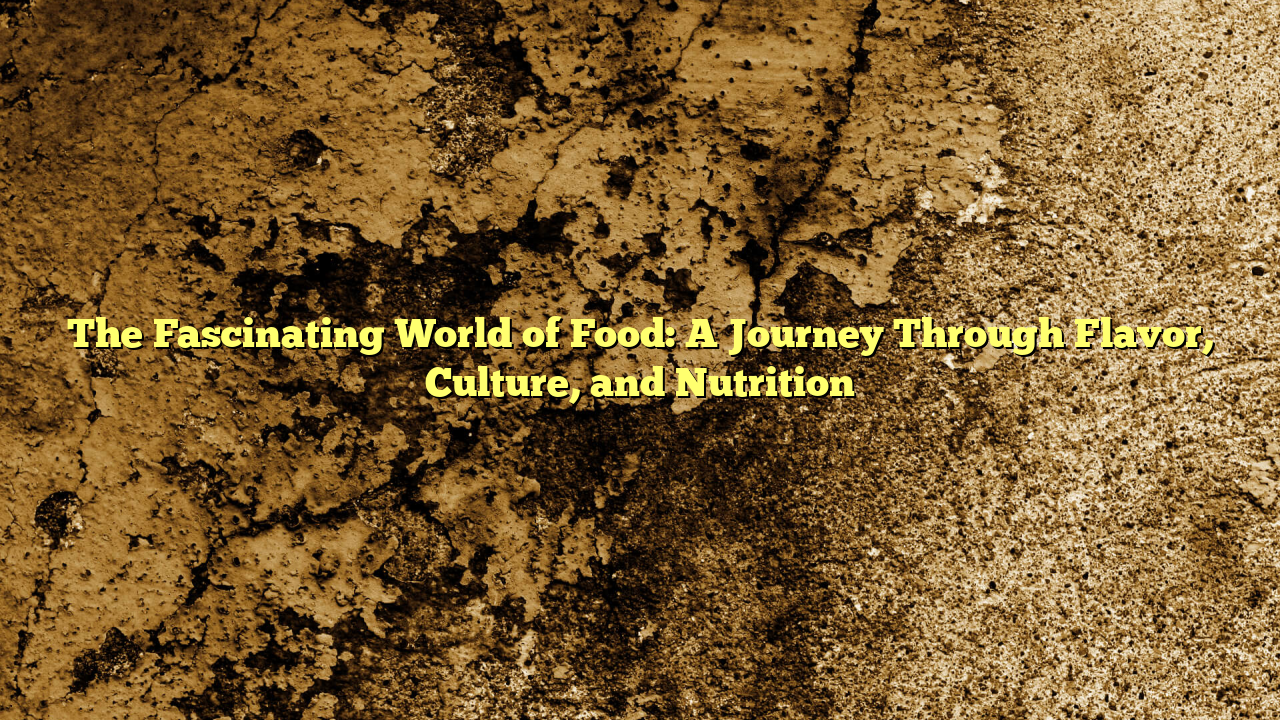Food is more than just sustenance—it is a celebration of culture, creativity, history, and health. From the simplest ingredients to the most complex culinary techniques, food plays a crucial role in human life. It brings people together, evokes emotions, and satisfies our deepest cravings. But beyond its necessity to survive, food has evolved into an art form, a science, and a medium for social expression. This article explores the significance of food, its evolution, and its impact on both individuals and society.
The Cultural Significance of Food
Every culture has its unique culinary traditions and practices, which are passed down through generations. Food is one of the most visible expressions of cultural identity. From Italian pasta to Japanese sushi, from Indian curries to Mexican tacos, food is a reflection of geographical, historical, and societal influences.
For instance, in Mediterranean countries, olive oil is a staple, not just for its health benefits but because it reflects the region’s agricultural practices and history. Similarly, Chinese cuisine incorporates a blend of various regional flavors, combining sweet, sour, salty, and bitter tastes, demonstrating the balance philosophy prevalent in traditional Chinese medicine.
Food is also a central element in celebrations and rituals across the world. Whether it’s the turkey on Thanksgiving in the U.S., the mooncakes during the Mid-Autumn Festival in China, or the sumptuous dishes prepared during Diwali in India, food plays an essential role in the rituals that mark important moments in life. It fosters unity and strengthens community bonds, as families and friends gather to share meals together.
Food as an Art Form
Beyond its cultural and nutritional importance, food has become an art form. Chefs today are as much artists as they are culinary professionals. The visual appeal of a dish is as important as its taste. The presentation of food—its colors, textures, and arrangement—can transform a simple meal into a masterpiece. The world of haute cuisine has elevated food to new heights, turning the preparation of a meal into a sensory experience.
The term “molecular gastronomy” is used to describe the scientific exploration of cooking. It involves using techniques like liquid nitrogen, foams, and gels to transform food into something entirely new. Chefs such as Ferran Adrià, Heston Blumenthal, and Grant Achatz have pushed the boundaries of what we think of as food, combining science and art to create innovative dining experiences. These chefs don’t just prepare meals—they challenge our perceptions and change the way we think about flavor and texture.
The Role of Food in Health
The health benefits of food cannot be overstated. The food we consume directly impacts our physical and mental well-being. A well-balanced diet that includes fruits, vegetables, whole grains, lean proteins, and healthy fats is essential for maintaining good health.
Nutrient-dense foods can help prevent a variety of chronic diseases, including heart disease, diabetes, and certain cancers.
Food is also linked to mental health. The gut-brain connection has become a focal point in research, showing how what we eat can influence our mood, cognitive function, and mental clarity. For example, foods rich in omega-3 fatty acids, like salmon and walnuts, are known to boost brain health, while a diet high in processed foods may contribute to feelings of depression and anxiety.
The rise of plant-based diets, such as veganism and vegetarianism, has sparked a new conversation about food’s role in sustainability. Plant-based eating is often touted for its health benefits, but it’s also seen as a more eco-friendly choice. Growing and consuming plant-based foods typically require fewer resources, such as water and land, and produce fewer greenhouse gases compared to animal-based foods. As more people become aware of these environmental concerns, plant-based foods are gaining popularity.
Food and Technology
As technology continues to evolve, so does our relationship with food. Innovations in food production, preservation, and preparation have revolutionized the way we eat. The advent of refrigeration and canning has made it possible to store food for longer periods, allowing for more variety in our diets. In recent years, plant-based meat alternatives like Beyond Meat and Impossible Foods have brought sustainability to the forefront, providing a more environmentally friendly option for those seeking alternatives to traditional meat.
Additionally, advances in food delivery systems have made it easier for people to enjoy restaurant-quality meals at home. Meal kit delivery services like Blue Apron, HelloFresh, and others have grown in popularity, offering consumers the convenience of cooking with
pre-measured ingredients. Furthermore, apps like Uber Eats and DoorDash have revolutionized food delivery, enabling people to have a wide range of restaurant options delivered directly to their doorsteps.
Technology also plays a role in agriculture. Innovations in farming techniques, such as vertical farming and hydroponics, are changing the way food is grown. These methods allow for the production of crops in urban areas, minimizing the need for large amounts of land and reducing transportation costs, which in turn lessens the environmental impact of food production.
The Future of Food
Looking ahead, the future of food promises to be an exciting one. With growing concerns about climate change, sustainability, and global food security, there is a movement toward finding innovative solutions to feed the world’s growing population. Scientists are exploring new ways to grow food more efficiently, including lab-grown meat and genetically modified crops that require fewer resources and yield higher nutritional values.
At the same time, the quest for healthier, more sustainable diets continues. As people become more health-conscious, there is an increasing demand for clean-label foods, which
are free from artificial ingredients and preservatives. Additionally, personalized nutrition, where diets are tailored to an individual’s genetic makeup and health needs, is on the rise.
The world of food is in constant flux, with new ideas and trends emerging every day. Whether it’s new ways to cook, more sustainable ingredients, or a deeper understanding of nutrition and health, food will continue to evolve to meet the changing needs and desires of society.
ovjtoto is much more than just something to eat. It is a reflection of culture, creativity, and history. It has the power to connect people, evoke emotions, and shape our health and well-being. From the art of fine dining to the science of nutrition, food is an ever-evolving field that is as fascinating as it is essential. As we continue to innovate, adapt, and learn, food will remain at the heart of human experience—nourishing not just our bodies, but our minds and our communities as well.
The Fascinating World of Food: A Culinary Journey



